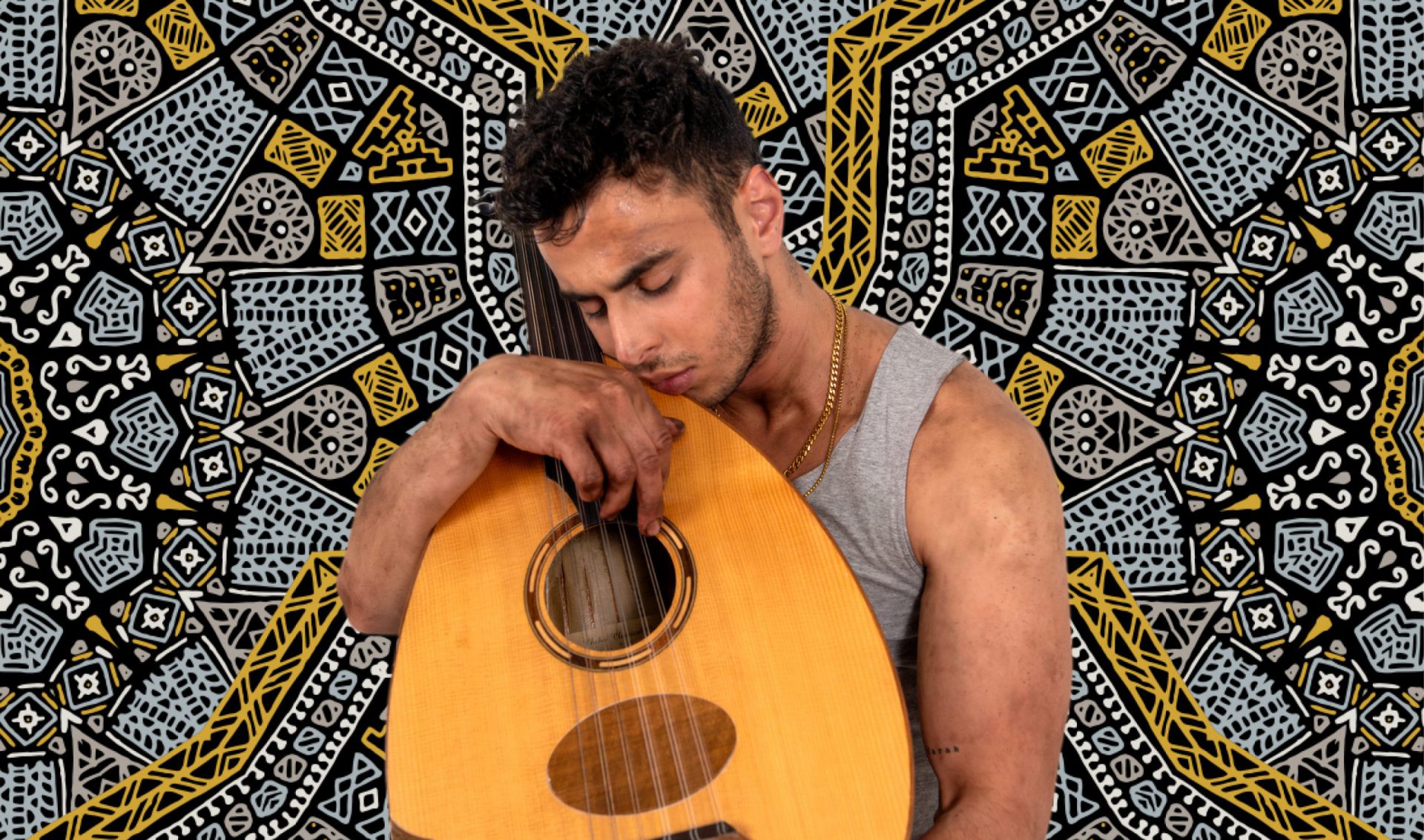Ahead of its opening on 25 July, Manan Luthra speaks with James Elazzi, Writer and Co-Director of Karim, about the play and his process.
Manan: What is Karim about?
James: Karim and his father Joe work as cucumber farmers in a small town in South West New South Wales, struggling to make ends meet. When locked out of their home due to unpaid rent, they turn to their neighbour Abdul for help. Abdul offers them shelter and shows them kindness during their time of need. It is during this stay that Karim discovers an old oud, a traditional Middle Eastern stringed instrument. Inspired by the instrument’s beauty, Karim secretly practices playing it, realising it might be the key to changing his life. However, when Joe discovers Karim’s secret, familial guilt and obligation become obstacles to Karim’s dreams. Will Karim find a way to overcome these challenges and pursue his passion for the oud?
What inspired you to write Karim?
I wanted to explore the repercussions of being continually pulled back by one’s background and the realisation that one cannot stay where they are expected to belong is a profound and relatable journey. It takes significant strength to break away, find the necessary support, and confront the invisible energy of guilt that resides within us. Both Karim and Beth struggle to find the courage to better their lives. However, as we all do, there comes a point where moving forward alone is the only option we have. Sometimes, there is no choice but to reject family, places, and people to find peace.
Tell me more about the oud. What is its history and significance in Middle Eastern cultures?
The oud has a fascinating history that dates back to ancient Persia and spread to the Arab world during the Islamic Golden Age. Often called the prototype of the modern guitar, the oud is known for its unique pear-shaped body and a short neck without frets, which are the dividers on a guitar’s neck that indicate one semitone.
Who is in the cast?
Youssef Sabet, Jane Phegan, Andrew Cutcliffe, Alex Malone & George Kanaan.
What was the development process like, for both the production and the script? Did anything unexpected occur, or did you run in to any challenges?
I had the germ of an idea when National Theatre of Parramatta commissioned me to write the full-length script. Usually, I write the script and then let it ‘settle’ for a few months before revisiting it. After that, we had a reading of the draft, and once that was done, I went back to the script and started rewriting. I truly believe that the script, especially for theatre, is very fluid, and you never seem to get to a point where it’s ‘finished’. As a writer, I need to mentally decide when to stop the rewrites and consider it complete for the time being.
What should audiences be looking forward to?
A play that will transport you into the lives of these characters and keep you captivated until the very end. I aim to create a world where the audience feels like a fly on the wall – experiencing, loving, laughing, and rooting for these five characters. My goal is to bring to light the stories of families that have been overlooked, and communities that are often sidelined. Their stories are as unique, complex, and rich as any others we have heard. I have no interest in creating work that provides a bland experience; I want the audience to be moved by what they see. This is my vision for theatre, and this is what I strive to create for the audience.
Sell the show in a sentence.
Karim will be like nothing you have seen in theatre this year. It embarks on a profound personal journey grappling with familial guilt, friendship, and love, ultimately realising that sometimes self-love requires leaving everything familiar behind.
Karim is presented by the National Theatre of Parramatta and runs from 25 July – 3 August. Tickets are available here.
